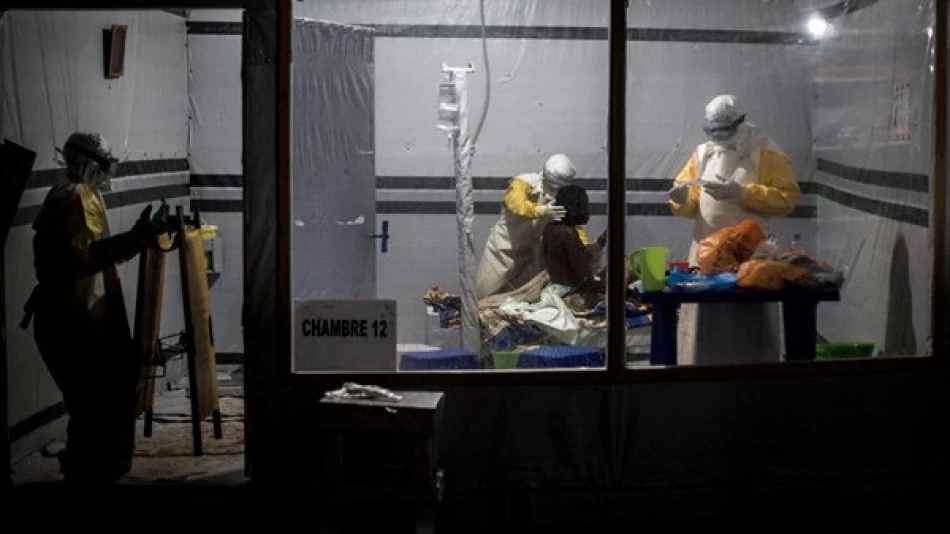
Democratic Republic of Congo Battles Resurgent Deadly Disease Outbreak
Congo's Ebola Outbreak Reveals Alarming 53.6% Mortality Rate as WHO Mobilizes Emergency Response
The Democratic Republic of Congo is grappling with a new Ebola outbreak that has already claimed 15 lives out of 28 suspected cases, marking a concerning 53.6% mortality rate in the southern Kasai province. The World Health Organization has deployed emergency teams to contain the spread, highlighting the ongoing vulnerability of Central Africa's healthcare systems to deadly viral outbreaks.
A Familiar Yet Devastating Pattern
Health Minister Samuel-Roger Kamba confirmed the outbreak after the sixteenth case was verified in Kasai province. The current toll includes 14 deaths in Bolabi and one in Moyika, with four healthcare workers among the suspected cases. Patients are presenting classic Ebola symptoms including fever, vomiting, diarrhea, and hemorrhaging.
The minister emphasized that these figures remain preliminary as contact tracing and case investigations continue across the affected regions. The high mortality rate underscores the severity of this particular outbreak, potentially indicating either a more virulent strain or delayed medical intervention.
International Response and Containment Efforts
The WHO moved swiftly to deploy specialists alongside Congo's rapid response team to Kasai province. The international mission focuses on enhanced disease surveillance, patient treatment, infection prevention protocols in healthcare facilities, and distribution of mobile protective equipment and medical supplies.
"We are working with determination to stop the spread of the Ebola virus quickly and protect the population," stated Mohamed Belhocine, WHO Regional Director for Africa, signaling the organization's commitment to preventing another large-scale epidemic.
Congo's Recurring Ebola Challenge
This outbreak represents yet another chapter in Congo's ongoing battle with Ebola, a country that has experienced multiple epidemics since the virus was first identified near the Ebola River in 1976. The nation's vast territory, weak healthcare infrastructure, and frequent population movements create ideal conditions for viral transmission.
Unlike the devastating 2018-2020 North Kivu outbreak that killed over 2,200 people, this southern province outbreak appears geographically contained for now. However, the high mortality rate suggests either limited access to early treatment or potential complications in case management.
Implications for Regional Health Security
The emergence of Ebola in Kasai province, far from previous outbreak zones, demonstrates the unpredictable nature of viral emergence in Central Africa. This geographic shift requires rapid reallocation of resources and expertise to a region that may lack the outbreak response experience of eastern Congo.
The involvement of healthcare workers among suspected cases raises particular concern, as medical personnel serve as both frontline responders and potential vectors for further transmission. Their protection remains critical for maintaining healthcare capacity during the outbreak response.
Success in containing this outbreak will depend on swift community engagement, robust contact tracing, and effective coordination between international partners and local authorities. The WHO's immediate deployment suggests lessons learned from previous outbreaks are being applied, though the ultimate test lies in preventing the virus from reaching urban centers or crossing international borders.
Most Viewed News

 Layla Al Mansoori
Layla Al Mansoori






